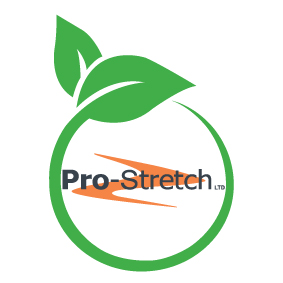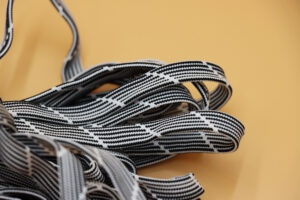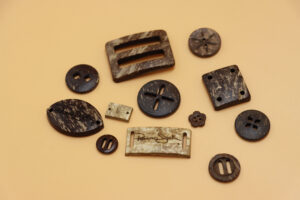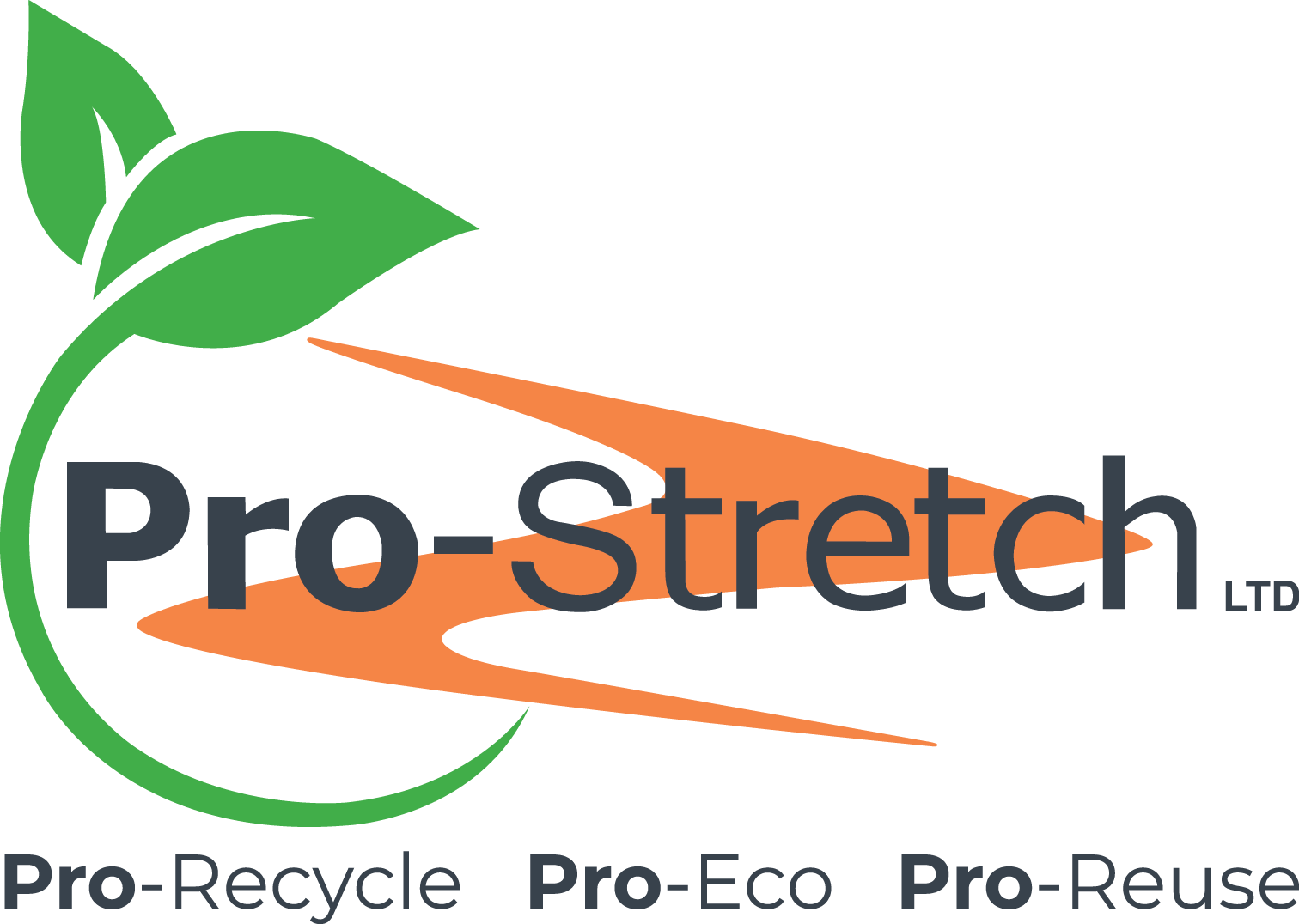Did you know Pro-Stretch are Sustainable Manufacturers?
Pro-Stretch continually create innovative trims and garment accessories using new sustainable materials. We aim to create products that are functional and quality assured, whilst also reducing our carbon footprint, promoting safe working environments and fair wages for employees, while supporting the natural environment.
Pro-Stretch are passionate about working with brands dedicated to producing quality, sustainable garments. We take a planet-friendly approach to providing durable and functional trims. Pro-Stretch care about our impact on the environment and in turn are taking action to reduce factory emissions. We strive to plant Sustainability and Corporate Social Responsibility at the first stage of a garment’s life to reduce its impact throughout production!
View our online Sustainable product catalogue HERE
.
Pro-Stretch can provide eco-friendly trims to suit your garment’s needs including Recycled Polyester (RPES), Recycled Nylon (RPA), Recycled Elastane (REL), Organic Cotton, Sorona corn fibre yarn, Bamboo yarn, Hemp, Linen, Bio-corn, Coconut, NAIA ™ Renew yarn, Wheat Straw crumb and Tencel.
Find out more below about the Sustainable options that we can provide:

.
Recycled Poly ester is durable and breathable and is made by melting down existing plastic and re-spinning into new polyester fibre. Apparel that uses recycled polyester helps to repurpose plastic and diverts it away from landfill and oceans. Recycled polyester has a smaller carbon footprint and production requires much less energy compared to virgin polyester.
ester is durable and breathable and is made by melting down existing plastic and re-spinning into new polyester fibre. Apparel that uses recycled polyester helps to repurpose plastic and diverts it away from landfill and oceans. Recycled polyester has a smaller carbon footprint and production requires much less energy compared to virgin polyester.

.

Tencel is a sustainably sourced natural wood-based fibre made from natural cellulose found in eucalyptus wood pulp. Tencel has biodegradable and compostable fibres. The breathable and lightweight Tencel trim is very popular with brands due to its soft and durable qualities.

.
 Bamboo is an eco-friendly durable functional trim that can easily biodegrade after use. Bamboo is not uprooted during harvesting which aids in preserving the soil; regular harvesting benefits the health of the plant and promotes stronger regrowth. Bamboo transforms easily into yarn using regenerated cellulosic fibres. Bamboo yarns contain natural moisture-wicking properties and provide a garment with a soft trim that has natural stretch.
Bamboo is an eco-friendly durable functional trim that can easily biodegrade after use. Bamboo is not uprooted during harvesting which aids in preserving the soil; regular harvesting benefits the health of the plant and promotes stronger regrowth. Bamboo transforms easily into yarn using regenerated cellulosic fibres. Bamboo yarns contain natural moisture-wicking properties and provide a garment with a soft trim that has natural stretch.

.

Corn fibre (and Sorona corn fibre) yarns are a soft, flexible eco-friendly product made from fermenting the plant sugars found in corn. Corn fibre is hard-wearing, quick-drying and can be blended with other sustainable fibres such as Bamboo to create a fully environmentally friendly trim.

.

Coconut buttons & drawcord stoppers are a lightweight and durable alternative for an eco-friendly garment. The coconut shell is the otherwise wasted by-product of the food manufacturing process. Due to not requiring deforestation to make; coconut is a renewable resource and therefore sustainable.

.

Organic Hemp is one of the most sustainable fibres that can be used on garments. Hemp fibres are made from a very high-yielding crop and the cultivation of Hemp for the purposes of creating fabric trims has a fairly low environmental impact; it requires very little water and naturally fertilises the soil it grows in. Hemp is one of the most versatile, strong, durable, natural fibres that is absorbent, insulating and breathable.

.

Recycled Cotton is a light, breathable natural fibre that has the potential to help reduce water and energy consumption compared to organic cotton. Recycled Cotton is also biodegradable and diverts many cotton products from landfills. BCI Cotton promotes better standards in cotton farming and reduces the environmental footprint.

.

Biodegradable TPU (Thermoplastic Polyurethane) is 100% recyclable and non-toxic. The process to make TPU is eco-friendly, and it can degrade in the soil in 3-5 years. The elasticity and transparency of TPU provides brands with a sustainable alternative for their garments.

.

Linen (and Hopsack Linen) is made using a very versatile crop from the Flax plant which requires minimal water and grows in poor-quality soil. Every part of the plant is used. Linen is strong, lightweight, absorbs moisture without holding bacteria and when un-dyed is fully biodegradable.
![]()
.

Wheat Straw crumb is a renewable and biodegradable alternative for brands who are striving for eco-friendly apparel. Wheat straw crumb can, for instance, be combined with biodegradable TPU to provide a heat transfer that is sustainable and durable.

.

NAIA ™ Renew Yarn is produced from sustainably sourced wood pulp. The NAIA ™ Renew Yarns can be combined with other compositions such as Recycled Polyester and Recycled Spandex to produce soft eco-friendly trims for sportswear and leisurewear apparel.

.

Recycled Nylon is soft, durable, stretchy and is largely produced using old fishing nets and diverts waste from landfills and oceans. Recycled Nylon uses much fewer resources during production than virgin nylon; less water, less energy and less fuel, making it more environmentally friendly.
![]()
.

Recycled Silicone Crumb is made from silica which is derived from sand. Manufacturing silicone does not involve mining from crude oil, which most plastics ie. polyester is made from. The recycled crumb is downcycled using broken down silicone and encased in virgin silicone to retain its durable structure.

.

Recycled Elastic can be achieved by collecting Spandex and Lycra waste from the manufacturing process and blending with sustainable fibres. This includes recycled Polyester/recycled Nylon and Tencel, to create an eco-friendly, more sustainable alternative for brand garments.


